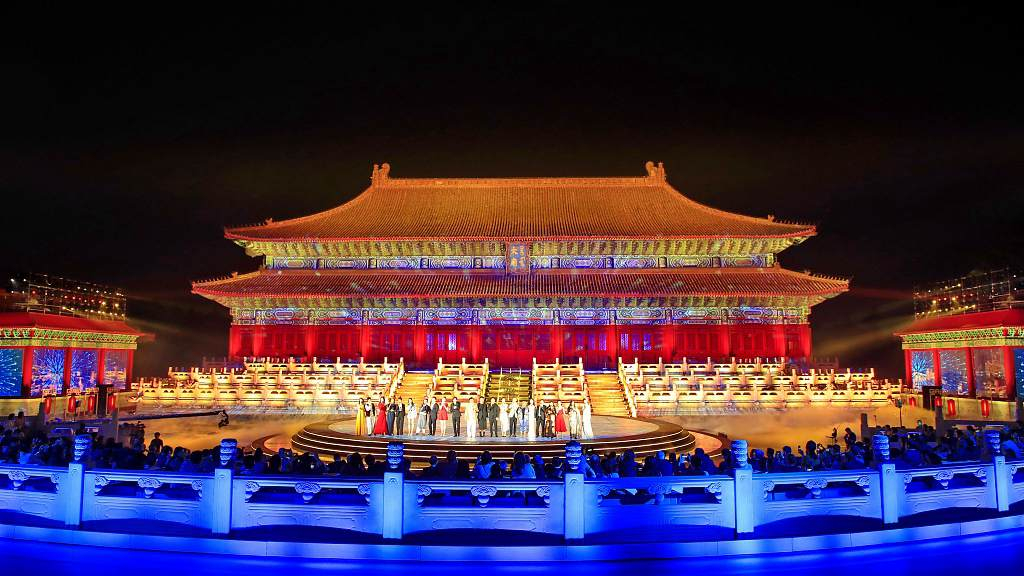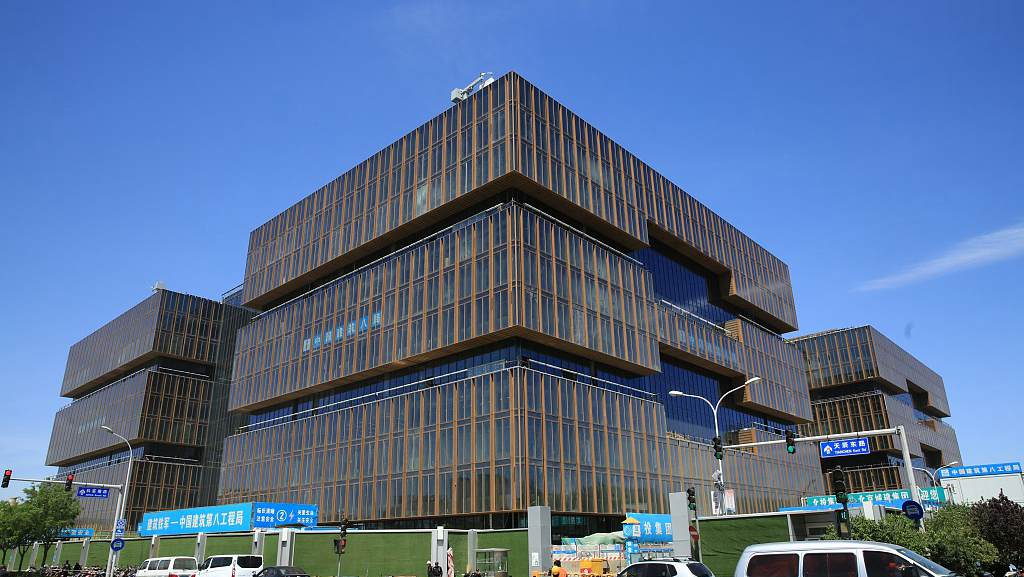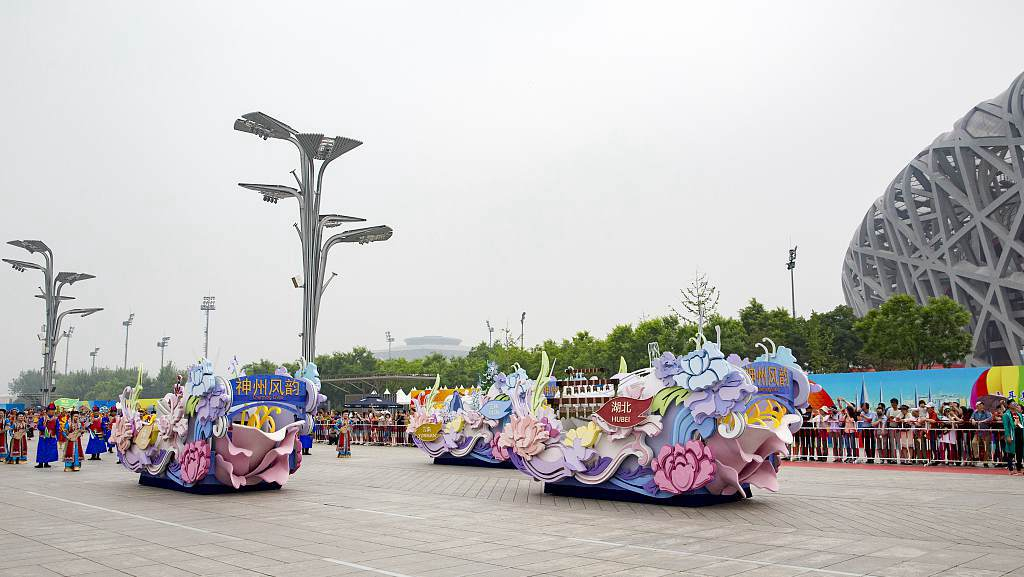
Opinion
16:52, 19-May-2019
Go from Asian civilization to Asian community
Wang Huiyao

Editor's note: Wang Huiyao is the director of the Center for China and Globalization. The article reflects the author's views, not necessarily those of CGTN.
Recently, the Conference on Dialogue of Asian Civilizations was held in Beijing. In his opening remarks, President Xi Jinping said that interaction and mutual learning promote the development of civilizations; Asian people should reject self-exclusion, embrace integration, uphold openness to foster a community with a shared future for both Asians and all humanity.
As an important part of global governance, Asia is an excellent starting point for building a community with a shared future for mankind.
First of all, Asian cultures are marked by both diversity and commonality. Asia is an important cradle of human civilization. People living in the areas along Tigris-Euphrates, Indus-Ganges, Yellow River-Yangtze and other basins have given rise to splendid civilizations through thousands of years of hard work.
At the same time, with the help of the ancient Silk Road and today's Belt and Road Initiative (BRI), Asian cultures have developed common values through exchanges.
Besides, Asian countries also share similar historical circumstances, pursue the same dream and make unremitting efforts to build a more open and integrated Asia.
Besides, better connectivity brings Asian countries closer together. With globalization roaring ahead, the economic, political and cultural ties between Asian countries have become closer.
In particular, the advent of the Internet era has helped to overcome the physical and geographical barriers between countries. People in Asia can carry out all kinds of exchange activities more conveniently. The BRI promoted by China can be seen as an epitome of connectivity among Asian peoples.
Furthermore, Asian countries have become stakeholders in each other success in the process of interaction. The exchange and mutual learning between Asian countries in political, economic and cultural fields have tied up the future of all Asian countries.
Community with a shared future is the means of survival and prosperity. Building an Asian community with a shared future is the only way for Asia to usher in a new era and the inevitable choice to promote world development and prosperity.

The headquarters of the AIIB is under construction in Beijing, China, May 19, 2019. /VCG Photo
The headquarters of the AIIB is under construction in Beijing, China, May 19, 2019. /VCG Photo
We have the following things to do to build an Asian community with a shared future. We should firstly work out the specific definitions and contents of the community.
In terms of developmental goals, it should cover the following five dimensions, namely, politics, security, economy, culture and ecology. In terms of operation, it should take into account five specific operable areas, namely, common interests, connected infrastructures, shared information, shared value and shared institutions.
Apart from that, we need to build a community with better-connected infrastructures by taking advantage of the BRI. Better infrastructure is the key to stronger economic growth. The BRI provides a valuable opportunity for Asian countries to develop their infrastructures. Therefore, countries should seize this opportunity, build more connected infrastructures, and promote connectivity among Asian countries.
Thirdly, we should promote the establishment of exchange platforms to increase exchanges and mutual learning between Asian civilizations and between civilizations inside and outside the region.
Through the platform of mutual learning and common development such as the Conference on Dialogue of Asian Civilizations, Asian countries can better carry forward the splendid achievements of Asia and other countries in the world, enhance cultural confidence, reach consensus on development, stimulate innovation, thus promoting the development of the Asian community with a shared future, and eventually building a community with a shared future for mankind.
In addition, we should adhere to mutually beneficial multilateral cooperation. The BRI, AIIB, China-ASEAN Free Trade Area and other multilateral cooperation have injected a strong impetus into the development of regional economic integration in Asia.

A cruise continues during the Conference on Dialogue of Asian Civilizations, Beijing, May 17, 2019. /VCG Photo
A cruise continues during the Conference on Dialogue of Asian Civilizations, Beijing, May 17, 2019. /VCG Photo
The multilateral economic cooperation among Asian countries can lay a solid foundation for the Asian community with a shared future. Therefore, as an important member of Asian countries, China should join hands with Japan, South Korea, India, Singapore, and other Asian countries to promote multilateral cooperation among Asian countries to build the Asian community with a shared future.
The spirit and principle of "harmony is paramount" and "great harmony" enshrined in Confucian culture should be highlighted in a bid to respect the cultural diversity in Asia and guide the development of the Asian community with a shared future.
Last but not least, we should give full play to the social and non-governmental forces such as think tanks and enterprises to strengthen popular support for the community with a shared future for both Asians and all humanity.
Non-governmental organizations are a vital force in exchanges and mutual learning among countries in that they provide essential platforms for cultures to interact and blend. Think tanks, enterprises and other institutions, as well as the people of all countries, need to step up exchanges to consolidate the widespread support for such community.
The civilizations of all countries have grown through learning from and opening up to each other. With the rapid globalization, Asian civilizations can become more open and inclusive to set an example for fostering a community with a shared future in the region and contribute Asian wisdom for building a community with a shared future for mankind.
(If you want to contribute and have specific expertise, please contact us at opinions@cgtn.com.)

SITEMAP
Copyright © 2018 CGTN. Beijing ICP prepared NO.16065310-3
Copyright © 2018 CGTN. Beijing ICP prepared NO.16065310-3